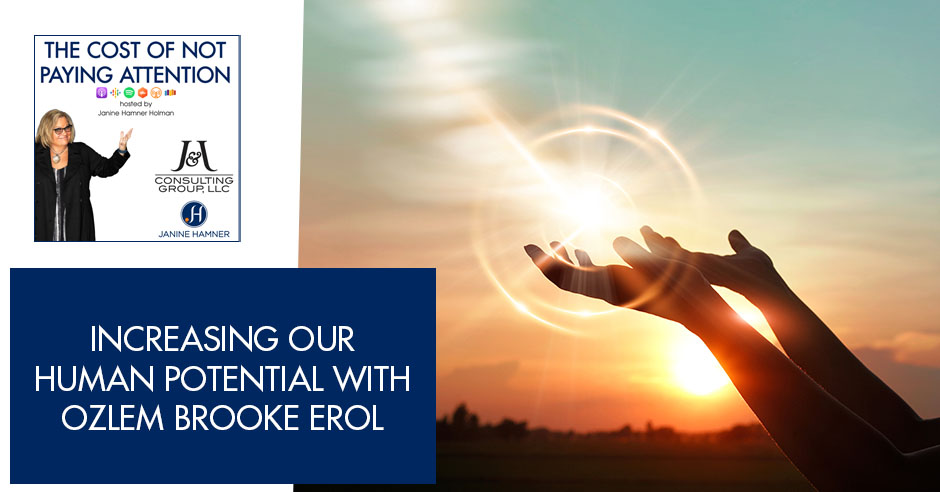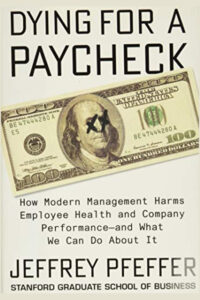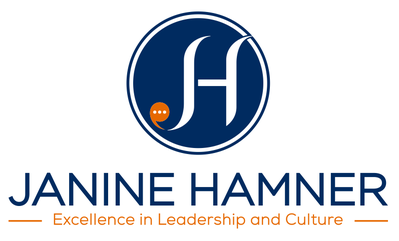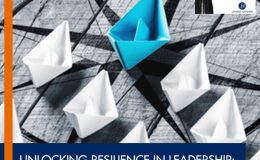
Not paying attention to your people as human beings causes waste in human potential. Janine Hamner Holman welcomes Ozlem Brooke Erol, the Founder of Purposeful Business. Ozlem shares how you need to find your individual and collective purpose. It’s when you identify your purpose that you can experience fulfillment. It’s crucial to feel fulfilled because it’s the most sustainable form of happiness. When individual people feel cared for, the organization rises as a whole. Tune in!
GUEST: Ozlem Brooke Erol | LinkedIn | Buy her books
HOST: Janine Hamner Holman | Janine@JandJCG.com | LinkedIn, Facebook, and Twitter | Subscribe to my Newsletter! | Book me to Speak!
—
Listen to the podcast here
Increasing Our Human Potential With Ozlem Brooke Erol
What am I paying attention to? I recently saw a new statistic which surprised me: by 2025, the two younger generations in the workforce, the Millennials and the Gen Zs, will make up 75% of the workforce. Those are folks who’ve been born since 1981. I knew that they were a big percentage of the workforce but I did not realize that in a few years, they would be 75% of the workforce.
There’s an interesting dichotomy with these folks. These are, for the most part, digital natives. They have strong values around purpose, mission-driven organizations, and honoring relationships. One of the things that is great about these younger folks in the workforce is that they demand something that I’ve long had a bee in my bonnet about. They insist that companies’ values are taken off the walls and felt through the halls in the day-to-day experience of work. Today’s guest, Brooke Erol, is extremely passionate about this as well.
Brooke Erol is an author, speaker, and advisor who has dedicated her life to bringing more human approaches to work. One of the things that I admire about her is that she believes that there is an enormous need to have a purpose in all of our businesses, especially with the growing percentage of Millennials and Gen Z’s in the workforce. Businesses are not just about profit. They are maybe even more about purpose because with a purpose, profit comes along quite naturally. Welcome, Brooke!
How are you? It’s so good to be with you. Thanks for the invitation. This is a significant topic for me in my head, mind, and heart. It is a pleasure to talk to you about these concepts.
What do you feel is the key missing ingredient that people have not been paying attention to?
It is in the statistics that you shared with us about the percentage of the Millennials and Gen Z coming on board. That’s on my mind because it’s important to look at the times during which they grew up. We can never look at any generation without seeing what was happening in the world during their formative years. That’s always on my radar and it’s why I love the name of your show, The Cost of Not Paying Attention.
For 150-plus years, we did not pay attention to the human being in the organization. That applies to many different layers and it is what I would love to talk to you about. In a nutshell, even after the obvious results of the pandemic, what it did to people and to workers, it is still not on the top of many leaders’ minds; people are still resources, machines, or numbers for many leaders. That has to change because it’s not sustainable.
It’s not sustainable to think of people as machines or numbers; it has to change. Share on XWhen you said that we haven’t been paying attention to the people for the last 150 years, it made me think. On the one hand, I can see it. You think about the industrial revolution and the rise of technology. The old technologies included railroads and airplanes while new technologies include all of the devices that we can hold in our hands. These devices are potent and include new and different ways of people management and resource management.
There is so much need for understanding! I am part of a generation that is starting to fade out of the workforce. When I was coming up in the world of work, the thought was, “Be grateful that you have a job. Keep your head down. Do your work. Go to work as your work self. Don’t bring your problems to work.” I had a boss who had one of those big red circles with a diagonal line through it, meaning no. Inside of it, there was the word drama.
“This was a no drama zone.” You check your home self at the door. Some other version of you goes to work, you leave, and then you become some other version of yourself. A realization has been accelerated by the pandemic. What we’ve realized is we are not bifurcated beings. We are not one person at work and another person at home. I am an integrated human. Who I am at home is who I am at work. Sometimes things are happening at home or at work that bleeds into me and into myself, regardless of where I am.
We think about that integrated human and how important it is. There are a bunch of different books out these days, like Bring Your Human to Work. They all have clever titles about the fact that humans are underrated. It is imperative for organizations to pay attention to their people, for those who have yet to be reached by that message. How do we continue to characterize that and explain it in a way that’s going to help bring them to the party and to begin to recognize the need to pay attention to people?
First of all, I’ll go back to a couple of things that you said which are important. This industrial revolution was not all bad. There’s so much innovation that happened because of it. People who worked in these places maybe had only one job for 20 or 30 years, and were feeling safe at work. They had a safety. They were able to make money and put money aside. Now they’re Baby Boomers with some retirement money in most cases.
Until the 1990s, it was working for a lot of different reasons and people felt secure. After the ’90s, downsizing or massive layoffs became a thing. What it meant was even if people all followed the best formula: work hard, get good grades, go to good schools, get a good education, and get a job, they would still get laid off. That was not something that happened until then.
Millennials watched their parents. They saw them work hard and work long hours, sometimes working at night and on weekends. They saw their parents get laid off, doing everything in their power to be a hard worker, a good employee. Coming back to the statistics you stated earlier, that’s why Millennials and the Gen Zs have more demands. Their parents worked so hard, gave up quality time with the family, missing their children’s sporting events and music recitals, and still ended up not being in the best place.

Dying for a Paycheck: How Modern Management Harms Employee Health and Company Performance―and What We Can Do About It
They did not feel secure anymore. They didn’t feel that they could hold on to the job for 30 years. They were laid off. They had to look for a new job. In some cases, like in the 2008 crisis, they even lost their homes. What are these children seeing? They’re not seeing what the Baby Boomers saw. They’re not observing the same world. They’re seeing that work can be demanding, you make sacrifices, and you may not be with your family. In the end, you might lose your money, assets, everything.
What they’re demanding is that work should not be this way. I want to spend my time with my children because my parents couldn’t do that. I want to be flexible at work. I want to blend my work and my personal life because, first of all, there’s no separation. We were forcing ourselves to be somebody different, which was also told to me. In my twenties, I worked for a huge company which never worked for me. That’s why I feel like I’m a Gen X but I’m more in the Millennial mindset because that concept of only waiting for the weekends or retirement never worked for me. It never made sense to me. That’s why I liked questioning the status quo, even when I was in my twenties. I had a tough time because we weren’t able to have these conversations.
That’s why it’s important to understand what these generations were observing as they grew up. The cost is high and is having a huge impact on people’s livelihood. People are burned out. 67% of them are burned out at work. They’re not getting the security as a result of working hard. 88% say nobody cares about them as a human being at work. You feel like you are only a number. They relate to the Holocaust because they feel like they have numbers on their arms. It’s almost like that, you have an employee number and that’s it. Everything is for the sake of profit. For the sake of growth, they sacrifice their well-being. There’s a book I recommend called Dying for a Paycheck by a Stanford professor. It talks about the statistics of how we lost our health. That’s why it’s not sustainable anymore.
If leaders want to grow their companies and make more profit, the only way for them to make that happen is to genuinely pay attention to their employees. This is especially true after the pandemic because people are experiencing more self-awakening. If they’re not authentic, people know it. They sense it. The clients sense it. The consumers sense it. It’s not only the people who work in the companies but all consumers want companies to have a social impact and not only make profits. There’s so much to say but I’m going to zip it there.
There was so much that you were pointing to in all of that. I like that grounding in history and in the things that were happening as the Millennials and Gen Zs were coming up in the workforce. My dad was forced into retirement after 40 years in the organization that he worked for. After he left, he did a couple of other consulting gigs because he wasn’t ready to retire yet at that point. He found other ways to use his brilliance.
You have to do the work on yourself and identify your individual purpose. Share on XIt has long been interesting to me. The longest I was ever at a job was probably close to ten years. I think about my dad who was at this one organization for 40 years. I always thought, “Maybe this will be the organization that I will be with until I retire.” I’ve always had that idea, even in my twenties like, “Maybe this is the one.” I never connected to those massive layoffs, those reductions in workforces, the risks that were happening so frequently that there became an acronym for what to call them.
As we’re thinking about what’s happening with what’s often called the Great Resignation, the need to be able to not only retain your best workers but also attract the best talent. It’s one of the things that I work on with organizations. It occurs to me that one of the key things that organizations can do is to become more purpose-driven, more mission-driven, more connected to ultimately what it is that they’re about, and then help their people get connected to that as well.
When I went through my own journey, I had to find out who I am. I realized I didn’t have a job that is aligned with who I am in terms of my values, my gifts, my flow, and energy levels. What do I want? I don’t want this job but what do I want? You have to do the work on yourself. There’s the individual purpose. Working with so many people who are unhappy and unhealthy at work, I realized I needed to go to the organizations because they make the biggest impact on people’s happiness and health.
I saw that both sides of the equation needed to happen. That’s why my business still has two parts to it. One, I work one-to-one with professionals to find out what they want out of work and out of life because I can’t separate them, but also organizations to have a stand. Why do they exist in the first place besides making a profit? You have to be on purpose.
I’ve been doing this work for decades. As we found out more about people, what a human being is and what is their motivation level, it’s not the external stuff. If you put a nice office chair there or offer a specialty coffee, yes, it increases your job satisfaction but it doesn’t increase your job fulfillment and engagement. Those are all intrinsic. The author Daniel Pink says, “It’s the purpose that you find at work, your autonomy. You want to make decisions. You want to bring your whole self to work. You want to have mastery.”
Those are things that you find inside of yourself. You tap into some dormant energies that you have. That’s why when I go to purposeful organizations or the ones that want to be that, I always say, “If you care about a human being, then you’ll care about purpose. It’s not the other way around.” Most people, because it became a big buzzword, want to go with purpose because everybody’s talking about that. That’s why I love that we are bringing more attention to it.
In the last few years, I’ve mostly spent my time on what a purposeful organization is not. It’s not a marketing tagline. It’s not something that you put out there, the values or the purpose on the wall. You breathe that every single day. It impacts every decision you make. When I follow and have conversations with people in my Purposeful Leader series, they are all more profitable.

Human Potential: Helping the company’s bigger vision makes a huge difference in people’s motivation levels.
They attract the best talent. They retain them as well. Employees are drawn to what they’re doing in the world. They feel like they are part of that big social impact too. They’re not punching numbers in accounting or they’re not only salespeople, they’re helping the bigger vision of the company which makes a huge difference in people’s motivation levels.
It does make a difference! I was talking with a hospital CEO and he was telling me about two gentlemen who he had happened upon in the course of walking around the hospital talking with people. Both of these gentlemen’s job was to clean the floor. He talked to one of them and said, “What is your job?” He said, “My job is to clean the floor.” The CEO said, “Thank you very much for the job that you’re doing. It is important to me. I appreciate it.”
Several hours later, he came across another gentleman and said, “What is your job?” The gentleman said, “My job is to make my floor sparkle so that my patients heal faster.” He thought, “That is the guy who has connected to the organization’s purpose.” Part of what is so brilliant about it is that the CEO remembered. It had an impact on him so that months later, he’s still telling the story. I wanted to ask, “Who’s the boss of that second gentleman?”
Sometimes we can get there ourselves. Sometimes we can figure out, “My job is to clean the floor and the hospital’s job is to have patients get better, heal, and be healthy. What does one have to do with the other?” More often, there are great managers and leaders at any place in an organization. Like me, you believe that leadership in an organization is not a title. It’s not a position. It is something that someone claims. I would say that the second gentleman is a leader in his organization.
I bet that there was another leader who helped him make that connection between the work that he was doing and the work of the organization. How would you suggest that organizations that either are already purpose-driven or as they’re reading this, are thinking, “Maybe I better get on this purpose-driven boat?” In addition to working with you, me, or with both of us, how could a leader start moving their organization in that direction of being a purpose-driven, mission-driven organization?
First of all, go deep into what the purpose of the organization is. It’s not only a statement. Unless you are starting up and you are the founder, you can declare the purpose. It’s always a collective intelligence exercise. When I do the purpose sessions, if they haven’t come up with a statement yet, some people who are working for organizations come up with better words than the executives.
It’s not another command control. “This is the purpose from now on. You will believe it.” It’s not that type of exercise. I’m not a big believer in hierarchical systems anyways. First of all, it’s collective. Next, one must have an in depth understanding of what it means, which is not a marketing fad. It’s not giving to charity. There’s nothing wrong with giving to charity but you can’t cause problems with people and or with the planet and then give a big fat check to a charity and be purposeful.
Organizations are made of human beings. How can you not care for them? Share on XYou can’t harm either one and be purposeful. I spend quite a lot of time with the executive team first to make crystal clear the benefits of being purposeful and that the profit becomes a byproduct engagement, becomes a byproduct everything, but I don’t want them to do it for that reason only. Honestly, it is only if they genuinely care about their people being happy and healthy. After this, they have to come up with the values. The why is great but how you get there are the values and then the vision. What does the world look like when you accomplish your purpose?
Without doing that foundational work, I believe that you can not put band-aids on for solutions here and there. It lays the foundation and it grounds the company and the people who work for that company. As soon as that happens, what we do in organizations is share that purpose. It is selected at the end after a collective intelligence exercise. If the organization is hierarchical, they may have a big committee talk about it.
When an organization is so purpose-driven, decisions are based on that purpose and values over and over again. The number one reason why it sticks with some organizations versus others is the commitment of the executive team. If they don’t have the commitment, if they make this a silo thing, “You take your purpose from now on.” It does not work.
The most important thing is if they have a people or culture department, which I refuse to call Human Resources at this point, then we go to every job definition that they have so that they tie it into the purpose. People do that on their own, like that person who cleans the hospital floors. They do it after they hear the purpose of the organization. How does what I do every day tie into that? Sometimes it’s not a direct tie but they find purpose in what they do.
One of the best examples is the story of the masons who are building a cathedral. The first one says, “I’m putting bricks together.” The second mason says, “I’m building a wall,” which is better. The third one says, “I’m building a cathedral.” You look at not only the first little part in what you say but you’re looking at the big picture. We want them to look at the big picture because the dynamics and the culture of the company changes from that. The hiring practices change because you want to do the hiring in a specific way. The people who are applying for the jobs change, who you hire changes because there’s a whole different dynamic and you want people to be aligned.
We look at organizations like it’s an entity but it’s made up of people. It’s organic. It is a human organization. How can you not care about human beings in it? There’s so much inspiration from those who have already done it. That’s why I put these conversations front and center because they prove that it’s possible and profit becomes a byproduct.
Talk about that for a second. People have asked me whether we’re talking about a diversity initiative or employee engagements. If they come to me and say, “I’m hearing about this diversity thing, we need to do something about it,” I say, “Why?” If they say, “We need it to get a contract. We want to be able to put it on our website. We’re doing something about it,” I get it and, I say this with empathy and compassion, that’s part of the problem.

Human Potential: Reward and acknowledge people who are purpose-driven and who make decisions based on values.
We all do it. We want a simple, fast solution. We want a quick fix. “Where’s the magic diet pill that I can take? Where’s the magic thing that I can do to transform my organization that is not going to take a lot of time, energy, and resources?”
I’ve got to start back at a mission, a vision, and values. It doesn’t mean that it has to take forever but it’s got to be grounded in that. They say, “What are the organizations that have done this effectively? Can you do it at scale?” I love that you’ve created this series of talking with leaders who are doing this work. Where can people find that?
I’m not a video person but a lot of people wanted that. I wanted to make sure I had the scripts, and the videos, and all the different ways that we all consume data and information. It first started like this: “How do we find our individual purpose? How do we become a purposeful organization?” Those are the two sides of the equation again. I realized it’s one thing for me to speak about what the organizations can do for the world and to bring these examples and these amazing CEOs and founders who have done it and have shown that it’s possible. It is creating miracles for their businesses. Examples of this are on my YouTube channel.
I started in 2021. I have probably 7 or 8 of them. When I started my purpose for business, I first looked all around the globe for these companies. My focus was financial wealth but the people are loving their work too. The common thing was always a purpose that they stood behind and always an emotionally intelligent leader. Those were the common denominators.
They’re not in a certain industry. It’s not a certain size of a company. It’s not a certain part of the world. I talked to someone in Turkey. Turkey’s going through so much turbulence financially and politically. You feel like that will be the last place to have a purpose-driven self-managed company, by the way, totally flat, no hierarchy, no HR, no KPIs, and no sales goals. They made it happen too. They’re growing 50%.
That’s why I want to show people that it is possible. These are the leaders in those organizations telling all about it. They share their numbers and how much innovation improves in those companies. People are free to speak. They’re free to make mistakes and that’s how innovation happens. This fast pace changes what happens in our world. There is no way to have any big company with layers and layers of management to be nimble enough to catch up with dark times. It’s not possible. That’s why I’m saying it’s not sustainable.
Those huge companies, I don’t know how they will do it because it’s the hardest thing to go from that hierarchical system. Unfortunately executives with big egos want to control everything. At the end of the day, it makes their lives easier if they tap into the collective intelligence of their people. The answers are there. Even as a consultant, I sometimes feel funny because I go and tap into their people. I already have a lot of answers for the executive team, which they could have done even before hiring me.
To me, that’s crazy. I’m killing my own business but it’s possible. That’s why the cost of not paying attention to your people is so high with the bureaucracy that you create with the human lives and potential waste. So much human potential is wasted. It’s crazy. We created the system and it worked for a while. Now we have to recreate. That’s why there’s so much consciousness around it. There are podcasts like yours. It’s great that we are starting to talk about what is not going to work anymore. That’s the silver lining of all these problems.
When people are free to speak and make mistakes, innovation happens. Share on XWe’ve talked a little bit about solutions and some folks who are doing it great. I’m going to talk about the cost again for a little bit. You touched on burnout. It is a big deal that the Harvard Business Review did a five-piece study on burnout. You can google depression rates of 2021 and 2022. The reality is that with everything that has been happening in these last few years, we are to the point that the country and the world have started shutting down.
We have had to adjust, find resiliency, and manage so many different kinds of adjustments. For parents who still had school-aged children, suddenly, not only were many of them working from home but now their kids were being homeschooled. We also often have parents who are aging and dealing with that and the fact that it’s all happening in the confines of our homes. We also have a massively divided country politically and morally. We have a massively divided world as we look at global economic and political changes that are happening.
We are living in a divided time. Look at the US over the last few years, especially since the murder of George Floyd, in May of 2020. For many people, that was what Malcolm Gladwell calls a tipping point. That was when many people suddenly realized, “It’s not just one bad cop. We have a problem with the system.” Many people suddenly started using systematic racism as a term, understanding and seeking to understand what it means to be “not white” in the United States in particular.
Certainly, if one is Black, one has a certain experience. If one is a Black and a woman, or gay, or biracial, one has a certain experience. You can start looking at all the different kinds of diversity. For some of us, that’s a value. For others, it’s not. Many years ago, I got interested in neuroscience and neurobiology too. It’s fascinating how our brains work. Why are our brains so big? Relative to our bodies, our brains are enormous and relative to other animals in the world. One of the schools of thought is that our brains are so big because we are social creatures.
In order to be safe back in the Serengeti, we needed our tribe. We needed our people. Now in order to feel safe, known, and seen, we need our tribe. We need to be able to bring our whole selves to work. Many neuroscientists believe that our brain got so big because we had to navigate those social relationships. It wasn’t to figure out the third rule of geophysics. It was, “What is Susan doing? What is happening in this relationship and how do I navigate it?”
When we bring it back to the world of work and to what we have an opportunity to do in our organizations, tapping into our need for feeling known, feeling seen, that connects so much to productivity. I know that you’ve got some great information and statistics around employee engagement and what that means for an organization. Can you share some of that with us?
If we see a person who is satisfied at 100%, an engaged employee’s productivity goes more than 100%, like 122%. If somebody is inspired by the purpose of the company, then it goes to 225%. Think about it. Satisfied is so good for so many companies. They don’t even want more than that. To me, engagement is something I use a lot because it’s the common business language. Unfortunately, the engagement is still a little bit forced because fulfillment is the most sustainable form of happiness. It comes because you are so aligned with the purpose and excited about the vision of the company. It comes from within you.

Human Potential: Bureaucracy wastes human lives and potential.
You do that automatically and organically. Nobody forces you to be engaged. I take it to a level of fulfillment where most companies do not even care about that. There are no statistics about that but that’s where they need to be. Once you are there and if you are aligned, if both people and organizations work hard on having clarity around what they stand for and what their gifts are, that’s when they match. That’s where all the miracles happen, the fulfillment and the synergy. There’s more impact in the world. Those people come to their families feeling happier. It has ripple effects too.
We only think of the person who’s at work. That is no longer the case. Thanks to the pandemic, when people are at work, their children are watching them. Somebody’s watching somebody working who’s so stressed out and somebody’s watching them through the camera. There is spyware around them. How many hours are you working? Think about their family or their children thinking of what work is versus somebody who can choose when to work, has accountability and delivers the results but he chooses this time. It’s a whole different experience for the family too.
The health issue is real because the number one stress factor is work. The number one factor for illness is stress. Everything is interconnected. How can we keep going this way? This is the silver lining. The pandemic put everything that was already wrong into the spotlight. We saw the racism because we were at home watching the whole thing for the first time. We had more time to reflect than work. We realize for most jobs, if there are not five people running around, we can work from home. It is possible to connect those two and have our dynamics in the day. It doesn’t have to be that for eight hours.
The last thing again is the work and the mental illness too. Everything was already there. It just shed a big light on all these problems and made them worse. Now people are thinking, “We could have a different light. We could have a different system. We could have more diversity. We could work in a different way.” That’s why companies are forcing their people to come back to the office at every cost.
It is going to pay so much more on this issue because they’re going to lose their people. That’s why there is the big resignation. I made a video about that. It is going to happen because you didn’t care about your people. Now that they’re telling you, you still don’t care. You’re not going to be able to keep them, unfortunately.
Brooke, I don’t want to end on a down-note. I want to end on an up-note. This has been a wonderful and rich conversation. We’ve been talking so much about purpose. My purpose in my company is to have the world of work be one in which everyone can thrive. That is where I’m going. I’m not going to get there in my lifetime. I’m going to make the biggest impact towards that that I possibly can. What is your purpose?
I am with you. People like us might not see all the positive impacts in our lifetime but you still want to do it. There’s an Indian proverb, “Blessed is he who plants trees under whose shade he will never sit.”
It’s so true. You still want to do it because it’s the right thing. My purpose is similar to yours. It did change over time but it’s always having people find meaning at work. It’s not only work for a paycheck. That makes a huge difference.
Fulfillment is the most sustainable form of happiness. Share on XEverything I do, from working with individuals to giving training, to writing, to speaking, is to increase our awareness and highlight those amazing leaders. It is possible and we can leave a better world for the next generations. I love when I read in one of the books that the Generation Z wants to declare a purpose instead of a major in college. Think about that. If you have your purpose, you’re going to do anything around it to get there. It doesn’t have to be this major or that major.
You can pull something from Anthropology, Physics, or art. That’s a beautiful idea. We’re getting away from standardized testing because we’ve realized that many people are disadvantaged by that test. We empower our young people to create their own purpose as opposed to creating their own major, or to declare a major that’s already been figured out by other people. I love that idea.
Brooke, this has been wonderful. I so appreciate your time, insights, brilliance, passion, and commitment to having the world be a better place. Thank you so much for being here with us.
It’s the same here. We share a lot of values and purpose. Thank you for bringing me on. I always love to talk about these topics. I can’t get enough of them. I love that you have named it “the cost” because the cost is human lives and we don’t want to do that. We can create a better system, which some are already doing. Thank you for making sure that you create the space so that we can have these conversations.
You’re welcome. Remember, great leaders make great teams. Until next time.
Important Links
- Brooke Erol
- Bring Your Human to Work
- Dying for a Paycheck
- www.YourBestLifeInc.com
- www.YouTube.com/c/purposefullifechannel
- https://Smile.Amazon.com/Ozlem-Brooke-Erol/e/B014CKDF82?ref=sr_ntt_srch_lnk_1&qid=1650573961&sr=8-1
About Ozlem Brooke Erol
 Ozlem Brooke Erol is an author, speaker, advisor, and a teacher-at-heart.
Ozlem Brooke Erol is an author, speaker, advisor, and a teacher-at-heart.
Her purpose in life is to create a world where people love their work using their gifts and talents freely, knowing they do not only make a living but also create meaning. She helps both individuals and organizations find meaning in what they do. Organizations she works with see a significant decline in turnover and observe improvements in their engagement rates. These all reduce cost of doing business but more importantly time and human potential wasted.
She is the author of Create a Life YOU Love and co-author of From Hierarchy to High Performance which became a bestseller at Amazon and four other books.





